The National Assembly recently passed and the President issued an Order to promulgate the Land Law (amended), ensuring the continuity, stability and development of land law; amending and supplementing regulations that are not suitable for practice; perfecting institutions to manage land according to its function as a resource, asset, and resource in terms of area, quality, and usage space, etc.
 |
| The Land Law (amended) coming into effect helps perfect regulations for land management in localities. (Photo: DANG ANH) |
At the 5th extraordinary session, the National Assembly passed the Land Law (amended), which is considered one of the most important legislative tasks of the 15th National Assembly term. National Assembly Chairman Vuong Dinh Hue stated: The passage of the Land Law (amended) at this session, together with the Housing Law (amended), the Real Estate Business Law (amended) at the 6th session, meets the requirements of synchronously perfecting policies and laws on land management and use in accordance with the institutions for developing a socialist-oriented market economy, so that land resources are managed, exploited, and used economically, sustainably, and with the highest efficiency.
Among many important new contents that voters and people are interested in, the most prominent is the regulation that after 10 years, families and individuals using land without documents will be granted land use right certificates.
The 2023 Land Law (amended) has divided the groups that are granted land use right certificates for land without documents, including: households and individuals using land before December 18, 1980, now confirmed by the People's Committee of the commune where the land is located that there is no dispute; households and individuals using land from December 18, 1980 to before October 15, 1993, now confirmed by the People's Committee of the commune where the land is located that there is no dispute; households and individuals using land from October 15, 1993 to before July 1, 2014, now confirmed by the People's Committee of the commune where the land is located that there is no dispute.
The above groups must be confirmed by the People's Committee of the commune where the land is located that the land is not in dispute, does not violate land laws, is not in the case of illegal land allocation, is in accordance with land use planning and depending on each group, there will be specific regulations on the issuance of land use right certificates.
In addition, households and individuals who are stably using land for agricultural purposes, and are now confirmed by the People's Committee of the commune where the land is located to have no disputes and to be in accordance with planning, will be granted certificates of land use rights and ownership of assets attached to the land in the form of the State allocating land without collecting land use fees for the area of land currently in use, but not exceeding the limit of agricultural land allocation to individuals as prescribed.
In particular, the Land Law also specifically regulates cases where the State recovers land for socio-economic development in the national and public interests to implement public construction projects; specifically regulates the basis and conditions for land recovery, the order and procedures for land recovery, etc., ensuring democracy, objectivity, fairness, publicity, transparency, timeliness and compliance with the provisions of law.
Regarding compensation, support and resettlement when the State reclaims land, the Land Law has specified the principle of "Having accommodation, ensuring income and living conditions equal to or better than the old place of residence" through regulations on resettlement area criteria regarding technical infrastructure, social infrastructure, and resettlement locations.
Regarding regulations on land finance and land prices, the Land Law has removed the regulations on the Government's land price framework; specified the principles, bases, and methods of land valuation; stipulated that the land price list is built annually and the first land price list is announced and applied from January 1, 2026, and the land price list is adjusted, amended, and supplemented from January 1 of the following year; the construction of land price lists according to value zones and standard land plots for areas with digital cadastral maps and land price databases.
The Law also decentralizes the authority to decide on specific land prices to the Chairman of the People's Committee at the district level; specifies 4 land valuation methods, stipulates conditions for application of each land valuation method; assigns the Government to stipulate other land valuation methods after receiving the consent of the National Assembly Standing Committee; in case the application of land valuation methods to determine specific land prices gives results lower than the land prices in the land price table, the land prices in the land price table will be used. The Law also stipulates expanding the composition of the specific land valuation council to ensure independence and objectivity in the valuation process.
Deputy Minister of Natural Resources and Environment Le Minh Ngan said: To ensure the effective implementation of the Law's provisions, the Ministry of Natural Resources and Environment is coordinating with the Ministry of Justice, the Government Office and relevant agencies to urgently submit to the Prime Minister for promulgation of a list and assigning agencies to draft documents detailing the implementation of the Land Law. Issue a plan for law implementation, which identifies the work contents, completion deadlines and responsibilities of relevant agencies and organizations in organizing the implementation and raising awareness of the Land Law, the responsibilities of all levels, sectors and localities in implementing the law; develop documents to promulgate under authority or submit to competent authorities for promulgation of documents detailing the contents assigned in the law.
Talking to reporters about the implementation and application of the law, the major issue identified is the organization of the development of detailed regulations guiding the implementation of the Land Law; accordingly, regulating the contents under the authority of the Government, the Prime Minister, the Minister, the Provincial People's Council and the Provincial People's Committee. Through reviewing the points and articles in the law that the Government is assigned to issue detailed regulations, it is expected that there will be 9 decrees.
For local authorities, there are 18 contents under the authority of the Provincial People's Committee to specify in detail, and 1 content under the authority of the People's Council to promulgate. In addition to promulgating documents guiding the implementation of the Law, another important issue is to clearly define the assignment of tasks to ministries, branches and localities to review current legal documents to ensure consistency and uniformity with the Land Law (amended), including laws related to land to ensure consistency and uniformity.
In the process of preparing for the dissemination of the basic contents of the Land Law and documents guiding its implementation, the Ministry of Natural Resources and Environment has developed a plan to disseminate, propagate, and guide the implementation of the law, coordinating with central agencies, ministries, branches, and news and media agencies to disseminate the law to those affected by the law and the people. From there, the management and implementation process of state management agencies as well as people and businesses will be most favorable.
The Ministry of Natural Resources and Environment proposed to the Government to focus resources on implementing state management contents such as building land databases, conducting basic land surveys and assessments, and maintaining land information systems. For localities, it is necessary to soon organize the construction of local land databases, connect with the central land database, ensure consistency, synchronization, and connect with other national databases...
Source: https://nhandan.vn/nhieu-loai-dat-khong-co-giay-to-se-duoc-xem-xet-cap-so-do-post797221.html
Source




![[Photo] President Luong Cuong presents the decision to appoint Deputy Head of the Office of the President](https://vphoto.vietnam.vn/thumb/1200x675/vietnam/resource/IMAGE/2025/5/8/501f8ee192f3476ab9f7579c57b423ad)

![[Photo] National Assembly Chairman Tran Thanh Man chairs the meeting of the Subcommittee on Documents of the First National Assembly Party Congress](https://vphoto.vietnam.vn/thumb/1200x675/vietnam/resource/IMAGE/2025/5/8/72b19a73d94a4affab411fd8c87f4f8d)
![[Photo] General Secretary concludes visit to Azerbaijan, departs for visit to Russian Federation](https://vphoto.vietnam.vn/thumb/1200x675/vietnam/resource/IMAGE/2025/5/8/7a135ad280314b66917ad278ce0e26fa)


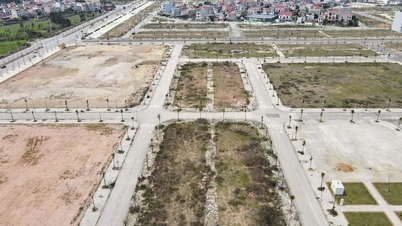

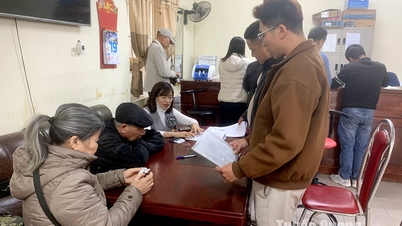




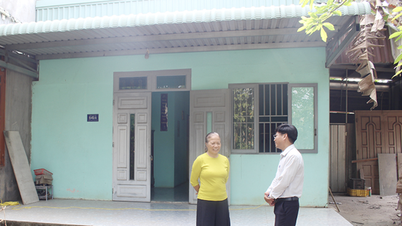

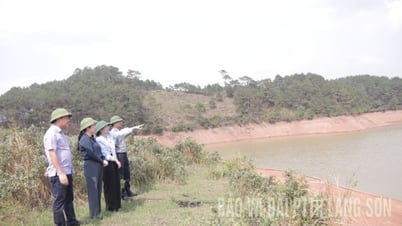
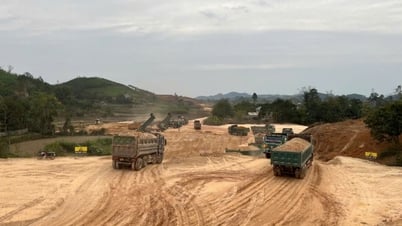

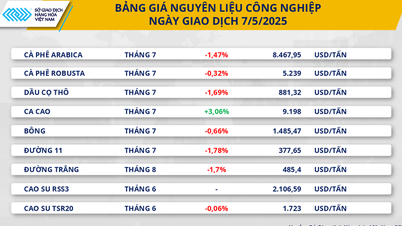





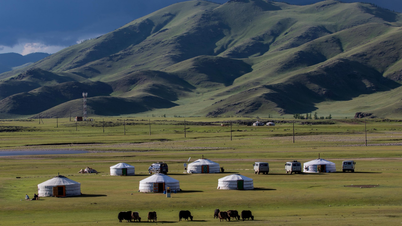





![[Photo] General Secretary To Lam receives leaders of typical Azerbaijani businesses](https://vphoto.vietnam.vn/thumb/1200x675/vietnam/resource/IMAGE/2025/5/8/998af6f177a044b4be0bfbc4858c7fd9)































![[Photo] Prime Minister Pham Minh Chinh talks on the phone with Singaporean Prime Minister Lawrence Wong](https://vphoto.vietnam.vn/thumb/402x226/vietnam/resource/IMAGE/2025/5/8/e2eab082d9bc4fc4a360b28fa0ab94de)











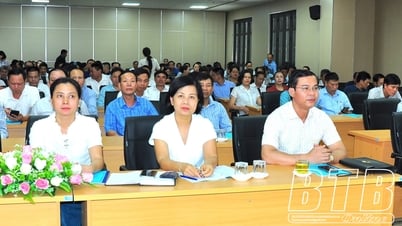





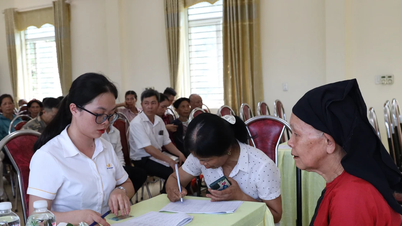















Comment (0)